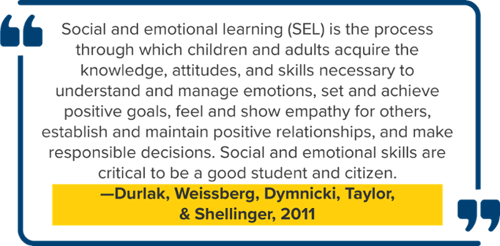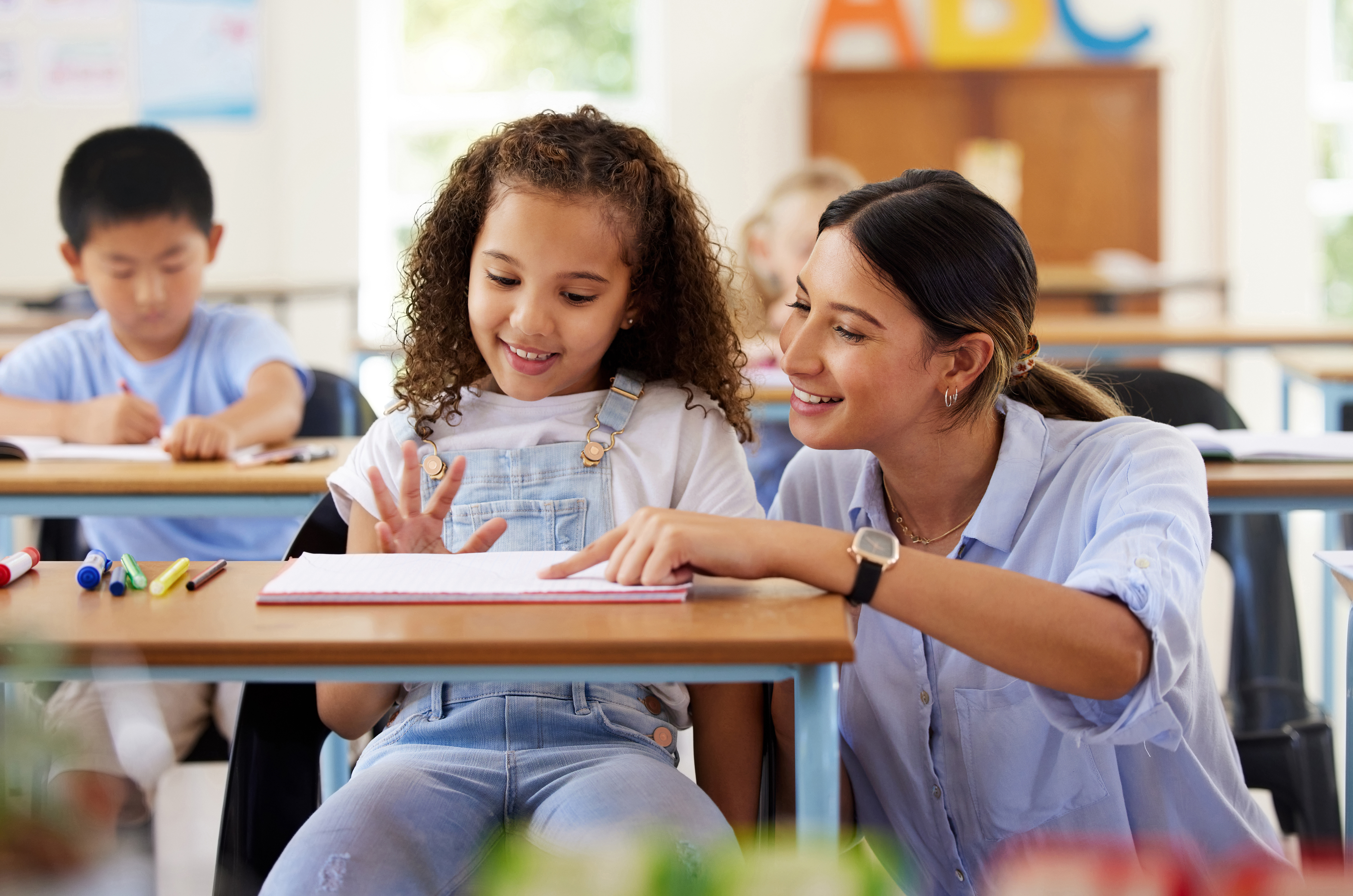
Chances are, if you’re reading a blog about social emotional learning, you are curious about what exactly these skills are, how you can share them with others, and how cultivating these social emotional learning skills can help you to advance your teaching career.
So, what is social emotional learning? Social emotional learning refers to the process in which adults and children understand and manage emotions. The types of skills acquired from social emotional learning work to create well-adjusted, responsible people, both young and old. While it is never too late to master social and emotional skills, it is best to develop them during childhood, which is why social emotional learning is so crucial for educators to master today.
Defining Social and Emotional learning Skills:
Social emotional skills include, but are not limited to, showing empathy, displaying self-control, using words to express feelings, asking for help when needed, and setting positive goals. Learning self-regulation skills helps students learn to take responsibility for what they can control and teaches them how to manage their emotions during challenging situations. Teachers who have training in social emotional learning are equipped to remove barriers to learning caused by psychological insecurity, lack of social awareness, and other challenging situations.
Social Emotional Learning Programs:
Think back to your own experience in grade school or high school – what interactions and lessons impacted you the most? Was it a math equation or grammar rule? Or was it when your middle school teacher helped talk you through your emotions when you did badly on a test? Or when your high school teacher took the time to practice empathy when you were having a personal issue? While those math equations and grammar lessons may have helped you practically, learning how to cope with emotions is something that can impact the rest of your life — academically, professionally, and personally.
Schools are seeking forward-thinking, qualified teachers to navigate the diverse learning needs of their students. To be competitive in a market of educators helping to shape our future leaders, enrolling in a social emotional learning program will help give you the sought-after skills needed to think outside the box to reach students. Anyone can share class lessons and teach information to students, but to really make a difference in students' lives and help them overcome learning barriers and become well-rounded individuals, you need to connect with them on a deeper level — to teach and foster the development of social emotional skills that will help them navigate everyday life.
Social Emotional Learning at a Distance:
Today’s teachers require skills that promote self-awareness, empathy, and psychological safety for their students to reach their highest potential. More than ever, especially with the uncertainty and disruption of the COVID-19 pandemic, teachers need to model and encourage social emotional principles to help keep a sense of normalcy and consistency in their students’ lives. When promoting these skills during an in-person lesson, the teacher can use live opportunities to redirect and incorporate these skills during class. Teaching social emotional skills via distance learning, however, requires teachers to think outside the box in order to create adaptive learning opportunities for their students.
In these days of mandatory distance learning, teachers are leading the charge with innovative methods to incorporate social emotional learning from a distance. Some ways teachers are continuing to teach social emotional skills that include having an intentional check-in to start the day, teaching breathing exercises, providing prompts for journaling exercises, and explaining how their students' can continue to thrive amidst today's global pandemic. While many feel as though the future is uncertain, this pandemic has caused many unique hurdles that in turn have perpetuated unlimited opportunities to apply social emotional concepts in the real world.
Social Emotional Learning Program at Neumann University:
The Master of Science in Education with an Emphasis on Social Emotional Learning program at Neumann University fosters a growth mindset and helps students acquire the skills necessary to evaluate and meet the social, emotional, mental, and behavioral needs of their future students in the classroom. Graduates with this training become data-driven professionals that serve as real-life examples of social emotional wellness for their students – leading with authenticity in helping guide their students to becoming self-regulating, thoughtful individuals, no matter their age.
The Master of Science in Education with an emphasis on Social Emotional Learning program will set you apart as a forward-thinking educator who is trained to help students achieve their highest potential. Not only will a graduate degree position you for a higher salary and career advancement, but it will empower you to lead by example and serve as a social and emotional mentor for students and colleagues. If you are up for the challenge and are ready to join a community of driven professionals at Neumann University, please request more information or start your online application today.
 CHALLENGE
CHALLENGE


![[NU] MS in EDU SEL Guide Cover](https://learn.neumann.edu/hs-fs/hubfs/Premium-Content/Cover/%5BNU%5D%20MS%20in%20EDU%20SEL%20Guide%20Cover.png?width=350&name=%5BNU%5D%20MS%20in%20EDU%20SEL%20Guide%20Cover.png)










